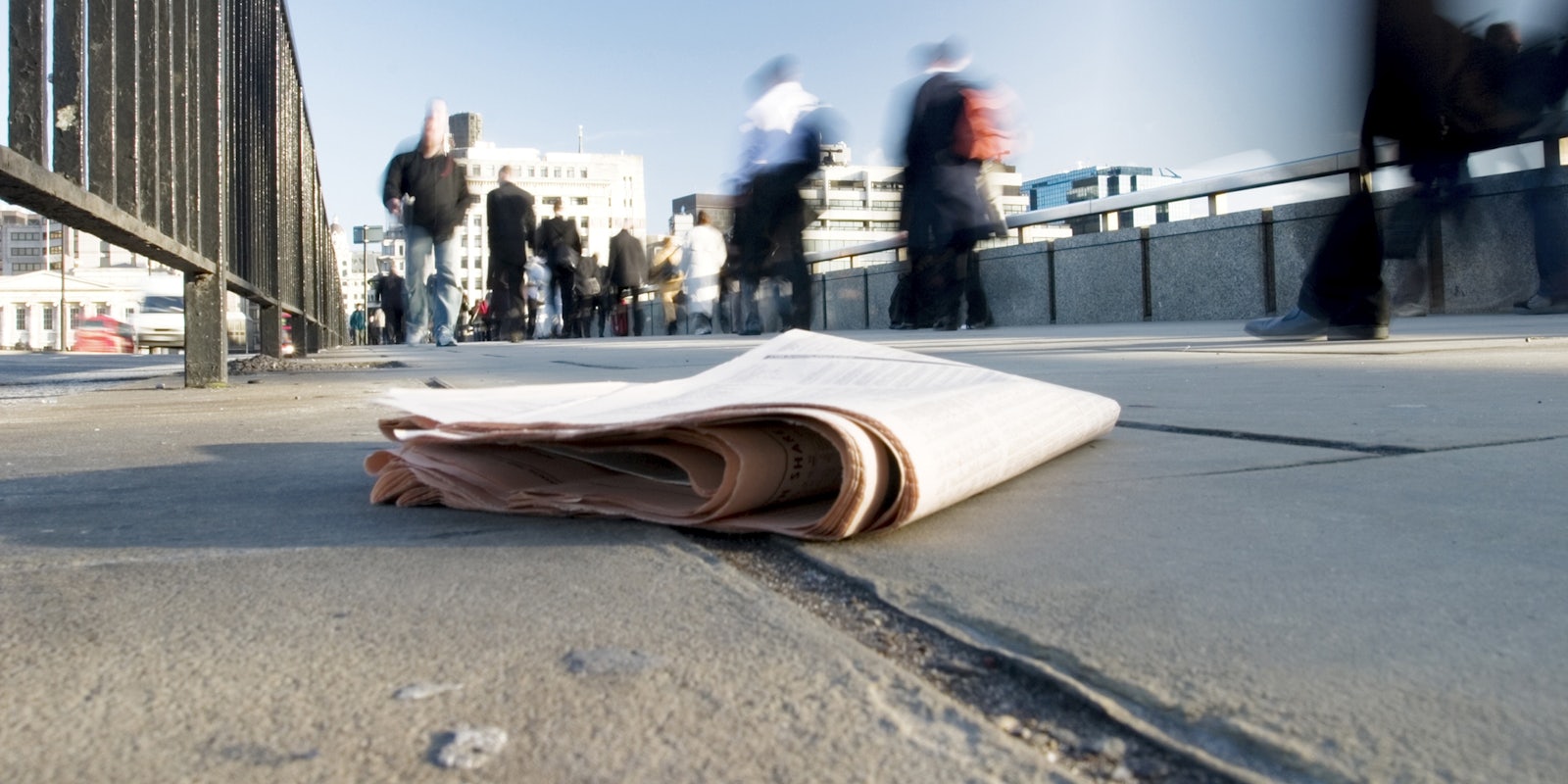A list of “fake, false, or regularly misleading websites” that went viral earlier this week after the Los Angeles Times promoted it has been deleted by its author, a Massachusetts media professor, in part due to the harassment she and her students subsequently faced, the author told the Daily Dot.
Melissa Zimdars, a media and communications professor at Merrimack College in Massachusetts, published her fake-news list, she said, with the intention of making it easier to identify sites that circulate misleading and potentially unreliable information. After appearing in the L.A. Times, the list was widely shared across social media, and covered by numerous news sites, including this one.
The list drew some criticism online because of corrections issued after it was first circulated—the Independent Journal Review was cut from the list after the L.A. Times pointed its readers to it, for example—and because it included sites such as The Onion, an award-winning satirical newspaper. The parody site ClickHole was also listed, and appeared utterly out of place next to sites like InfoWars, which frequently spreads hoaxes easily debunked, and “abcnews.com.co,” which poses as a mainstream news source while intentionally spreading false information.
Zimdars, who started the list originally as a resource for her students, told the Daily Dot it was removed for two reasons:
Firstly, I am currently being doxed/harassed (and indirectly threatened) by readers of some of the websites on the list (as are my colleagues and even one of my students). This kind of activity is *exactly* why those websites were included on my list in the first place, and this kind of activity, largely by the alt-right, will likely be a major roadblock to anyone who is critical of them in the future.
Secondly, I paused editing and adding to the list at this time because there are a few different groups working on building different databases for assessing news (in all its categories). One of them will likely contain “ratings” based on various assessment factors (sourced from journalists, professors, and even just readers), another will likely contain more information about each source (who publishes it, how long it has existed, etc.) and examples of headlines or stories to support a website’s inclusion in a particular classification. These will be much more useful to people moving forward and I hope to help make them all happen. I will definitely send you information as I receive it.
Facebook founder and CEO Mark Zuckerberg had his feet held to the fire this week over the flood of fake and biased news promulgated by his social network during the presidential election—and for nonchalantly brushing off concerns about a potential swaying effect on U.S. voters in a manner typical of the boy-man billionaire.
As Paul Mozur and Mark Scott of the New York Times noted Thursday, Facebook has influenced numerous elections, not just in America, where it was was shrewdly employed in 2008 to rally support to elect the first black U.S. president, but around the world, where genuine news intended to inform electorates often struggle to complete with “an onslaught of online misinformation and abuse that has had real-world political repercussions.”
Specifically, an image of a young girl reportedly raped and beaten—which actually originated in Brazil—has been used in the Philippines to defend President Rodrigo Duterte’s violent campaign against drug addicts. And fake news labelling Indonesia’s president, Joko Widodo, a “Chinese Christian and a communist” (Indonesia is an Islamic country) had a “very big impact” on his 2014 run, a campaign staffer told the Times.
Facebook took a meager step to address those concerns on Monday, asserting it would no longer display ads on sites containing “misleading or deceptive” information, including fake news. How that policy shift—or, as Facebook explains it, renewed emphasis on a long-standing rule—will play out is anyone’s guess. But the company’s acknowledgement is slightly more reassuring than its founder’s initial reaction, which was to call any suggestion that Facebook had influenced voters “pretty crazy.”
In mid-October, Eric Trump, son of the president-elect, shared an article on Twitter from a hoax website which claimed to prove protesters at Trump rallies had been paid by the Clinton campaign. “Finally the truth comes out!” Trump the younger tweeted, and later deleted.
Then, just days before the election, retired Army Lt. Gen. Michael Flynn, who has been asked to serve as Donald Trump’s national security advisor, tweeted a false-news story that claimed evidence had been pulled from Anthony Weiner’s laptop that would “put Hillary [Clinton] and her crew away for life.”
Flynn’s tweet was still live at time of writing.


